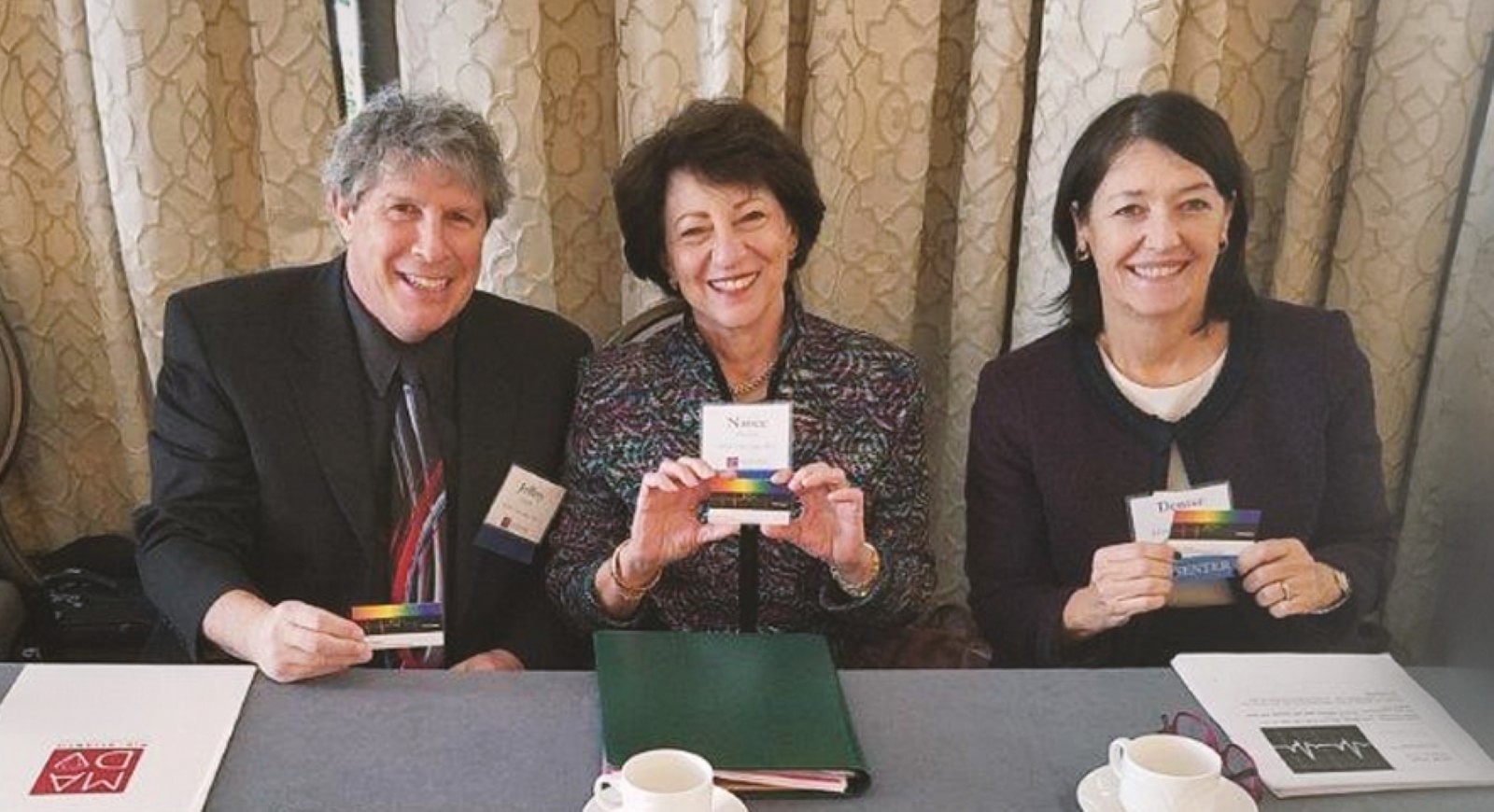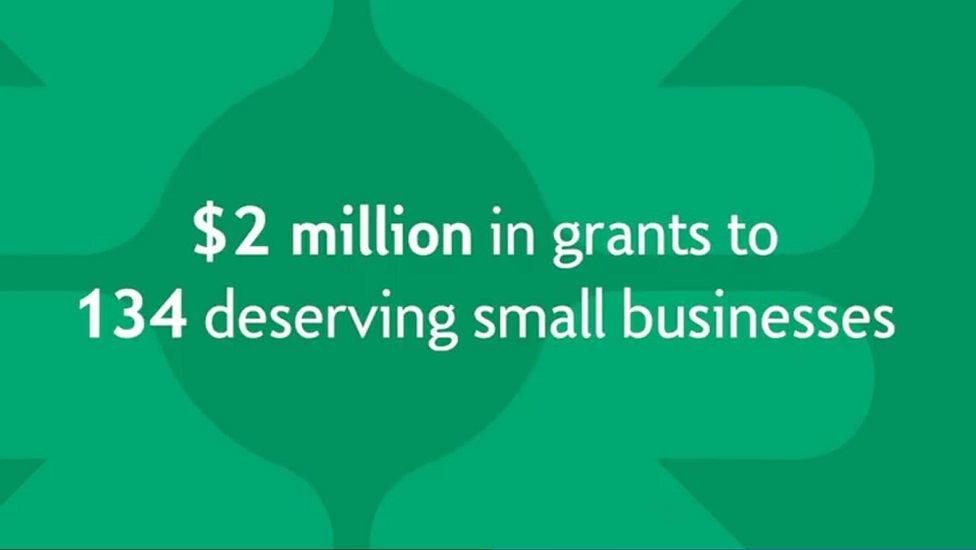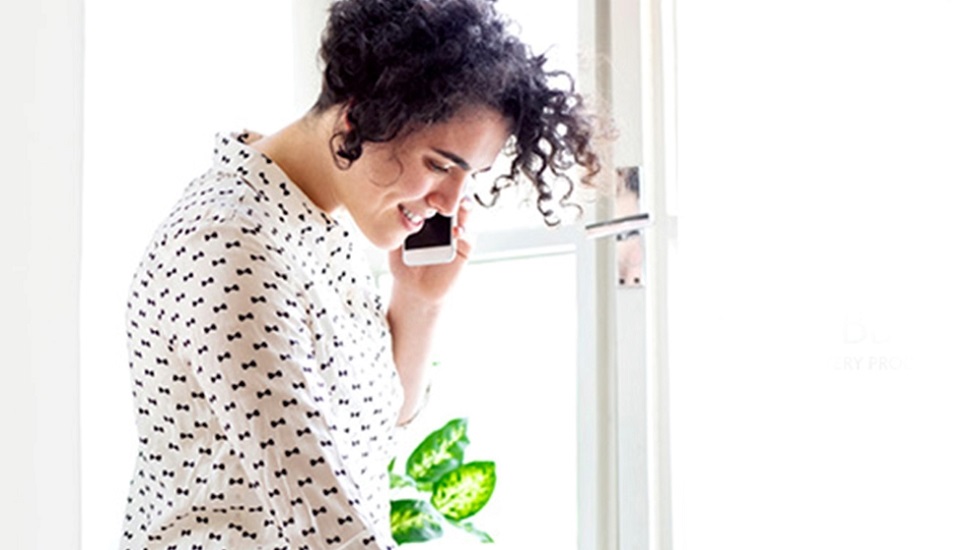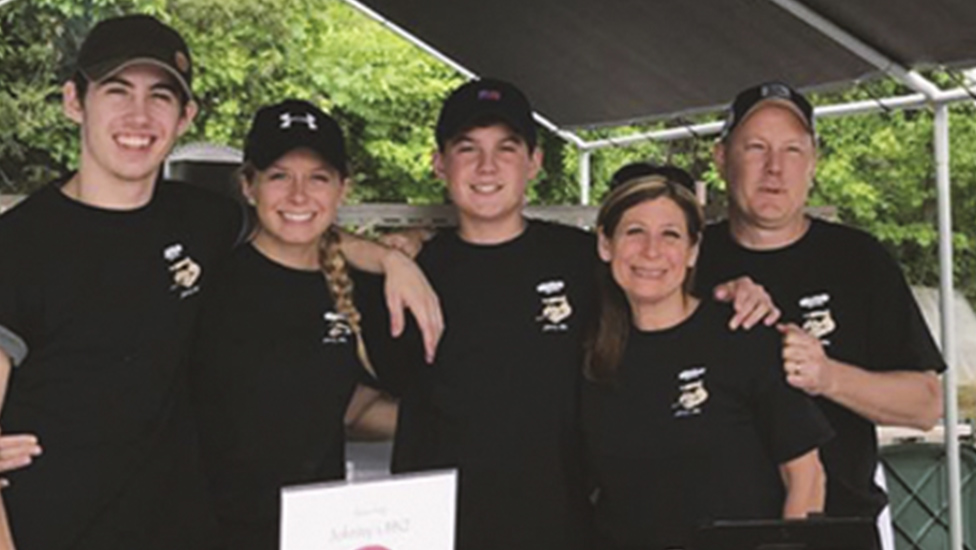Vital technology for detecting COVID-19
By Tiffany Cuddihy | Citizens Staff

Philly's RTM Vital Signs one of 134 recipients of $15,000 grant from Citizens' Small Business Recovery Program
These days, the COVID-19 pandemic has the entire world focused on the importance of early detection. The sooner a patient can be diagnosed, the faster they can be isolated and treated. However, with so many asymptomatic patients testing positive for COVID-19, there isn’t a clear solution for early detection in sight.
Fortunately, RTM (Real-Time Monitoring) Vital Signs in Philadelphia has a plan that doesn’t involve sight, but rather sound to help with the early detection of COVID-19. The company offers proprietary, cost-effective acoustic monitoring technology to track a patient’s vital signs using real-time devices.
“Real-time tracking of respiratory health using our technology could potentially help detect the earliest signs of COVID-19 within the body,” says Denise Devine, Co-founder, CAO, and CFO of RTM Vital Signs.
Four years ago, Devine and fellow co-founders Dr. Jeff Joseph and Nance Dicciani, Ph. D, set out on a mission to transform health care from reactive and hospital-centered to preventative, proactive, evidence-based, and person-centered.
Today, RTM Vital Signs has put their mission into motion with the development of two devices.
The first is the RTM acoustic ventilation device. It’s wearable on the skin — positioned on the sternum — and is used to record respiratory function. This is the device that has the potential for COVID-19 detection. With COVID-19 specifically, the respiratory symptoms can be minor to nonexistent at the beginning stages of the infection in some patients, so the acoustic technology of the ventilation device is key. The device is designed to report on respiratory function and tidal volume, which is the volume of gas entering and leaving the respiratory tract with each breath. This makes the device uniquely qualified to catch the distinguishing breathing patterns that have been associated with COVID-19 even before a person starts to feel ill.
The second device is the RTM cardiac monitoring device, which is a minimally invasive implant that offers continuous blood pressure monitoring with diagnostic algorithm accurate enough to detect the onset of a true cardiac event like a heart attack or stroke.
Both RTM devices, which are smaller than a dime, alert doctors to changes in a patient’s vital signs through a smartphone application, says Devine.
“The app sends the data to the doctor and the patient so everyone is on the same page with results,” she says.
Making a case for COVID-19 application
The company realized its technology could be used to detect COVID-19 after unexpected and devastating news: Dr. Joseph tested positive for COVID-19 and was in the hospital for several days.
“He has since recovered,” explains Devine, “but his experience with the severity of the disease made him seriously consider the RTM acoustic ventilation device as a possible tool in the fight against the virus.
“Our goal is to make the RTM acoustic ventilation device as accessible as a household thermometer or a pulse oximeter,” Devine states. “The device itself is so tiny; it can be worn every day and by pretty much anyone.”
However, due to the current COVID-19 pandemic, the team’s resources and lab work are temporarily shut down, preventing the next phase of development from progressing.
Fortunately, RTM Vital Signs received a $15,000 grant through Citizens Small Business Recovery Program. Citizens has distributed $5 million to help small businesses and organizations cope with the devastating affects of the COVID-19 pandemic, including a collective $2 million in grants to 134 local businesses to help pay for expenses like staffing needs, lost income, and recovery efforts.
“This Citizens grant makes us feel like people think we are on the right track and working on something important,” says Devine. “We are so grateful.”
From a crisis to a pandemic
Dr. Joseph, the Chairman of the Scientific/Clinical Advisory Boards of RTM Vital Signs, has more than 30 years of experience as an anesthesiologist. He originally created the RTM acoustic ventilation device when he saw the need for a reliable way to predict patient opioid overdoses in time for intervention.
Even in hospitals, there’s no easy way to monitor someone’s respiratory function while they are on opioids. This makes it easy for surgical patients to misuse their medication during at-home recovery. Since the respiratory effects of opioids aren’t always easy to detect, the medication is easy to abuse.
According to the latest CDC data, more than 67,000 people died from drug overdoses in 2018, making it a leading cause of injury-related death in the United States. Of those deaths, almost 70% involved a prescription or illicit opioid.
“Overdose prevention was the first reason for the device,” says Devine, “but in the process of developing it, we quickly realized that there are many different applications for the technology.”
According to Devine, the device can help predict deteriorating situations related to chronic obstructive pulmonary disease (COPD) and sleep apnea. And most recently, due to COVID-19, the team is testing its application for detecting respiratory distress caused by viral and bacterial infections.
RTM Vital Signs’ work hasn’t gone unnoticed. The company was awarded "breakthrough/fast track” status by the FDA for the RTM acoustic ventilation device, which gave them the green light to start human trials at Thomas Jefferson University (TJU). They also received a National Institutes of Health (NIH) grant in 2019 for the RTM acoustic ventilation device to be used for opioid overdose intervention.
However, all of this momentum has been halted due to the pandemic. While the RTM Vital Signs team has shifted their focus, it hasn’t stopped them from pressing forward. In fact, they recently revised their original NIH grant proposal from 2019 to now include the COVID-19 application. With the government’s urgent push to fund any COVID-19 related work, the team is optimistic that work will continue soon on the RTM acoustic ventilation device.
Devine says the grant money from Citizens is going a long way toward keeping them going in the short run.
“The grant is paying our bills, helping with development efforts, and allowing us to continue with prototypes,” concludes Devine. “Once the TJU research labs reopen, we will be in a much better place to continue thanks to Citizens.”
Dr. Joseph, Dicciani, and Devine continue to put time and money into getting RTM Vital Signs out of the labs and into homes everywhere.
As new funding opportunities arise, so does new hope for the future.
We're made ready to help small businesses
If you’re interested in learning more about RTM Vital Signs and their devices, start here.
And check out all the ways Citizens is supporting local businesses and our communities during the pandemic.
Learn more about our grant recipients

Learn more about our grant recipients
- Anila's Dress Maker (Penn.) pivoting to create face masks
- Widmer & Davis Artisan Distilleries (N.H.) shifting to produce hand sanitizer
- People Against Trafficking Humans (N.Y.) staying true to its mission
- Operation Made (R.I.) helping veterans share their gifts
- The Log Cabin Restaurant (Conn.) giving back in troubling times
- Clover Gift Shop (V.T.) keeping its legacy alive
- Bridgeway Home (Ohio) doubles down during pandemic
- RTM Vital Signs (Penn.) adapting to detect COVID-19
- Fresh Truck (Mass.) is ready to keep rolling
- Visiting Angels of Verona (Penn.) providing hope for seniors
- Johnny's Victory Diner (R.I.) gets a much-needed win
- Broad Street Ministry (Penn.) opening hearts despite closed doors
Video
Related topics

Review all 134 grant recipients

Group home doubles down during pandemic

Johnny's Victory Diner
© Citizens Financial Group, Inc. All rights reserved. Citizens Bank, N.A. Member FDIC
Disclaimer: Views expressed may not necessarily reflect those of Citizens. The information contained herein is for informational purposes only as a service to the public and is not legal advice or a substitute for legal counsel. You should do your own research and/or contact your own legal or tax advisor for assistance with questions you may have on the information contained herein.
